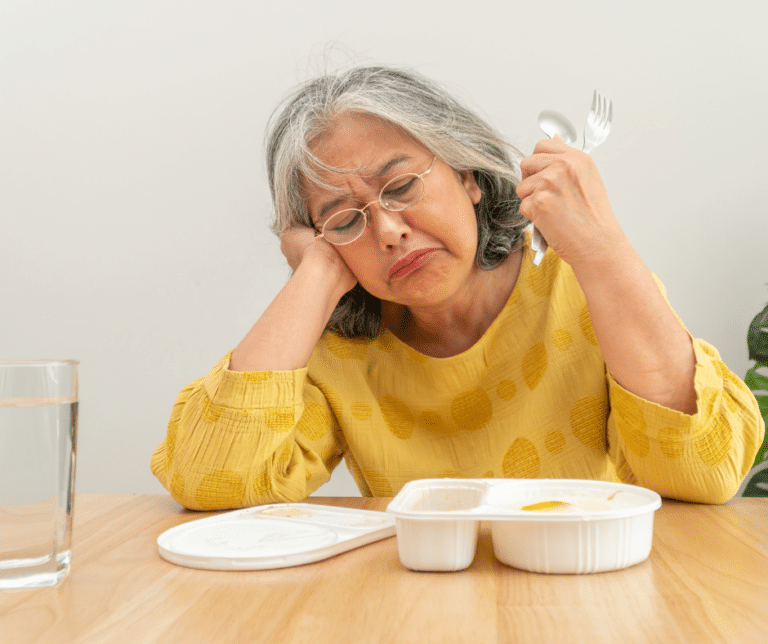Sometimes weight loss comes so slowly, you don’t recognize it if you’re with a person every day. But then a family member visits and says that Grandma looks like she’s lost some weight and you take a second glance and realize she has. But you also know that she isn’t battling any conditions that would cause weight loss, so what is going on? Why has your elderly loved one started to lose weight at this point in her life?
Six Reasons Your Senior Loved One Isn’t Eating
Even without battling a major illness like cancer, it’s not uncommon for some seniors to start losing too much weight as they age and risk being in danger of being malnourished. Malnourishment doesn’t necessarily mean your loved one cannot get the food she wants, in some elderly loved ones, it occurs because of other social, emotional, or physical things that are also occurring in your loved one’s life, causing her to either avoid food altogether or restricting her intake of food to just a few items and reducing the needed intake of all nutrients.
Let’s look at six reasons why your loved one might not be eating.
- Struggling to eat due to physical limitations. Your loved one might be having problems with her dentures fitting properly, making eating painful. Or arthritis might make using a fork and knife properly, limiting what she can eat.
- Dementia. Dementia can cause your loved one to forget about meals or make a meal out of something inappropriate, providing little or no actual nutrition.
- Decline in enjoying food. Aging can bring on some changes to taste, smell, and sight, all of which play an important part in enjoying a meal. Without getting the enjoyment that she used to from eating, your loved one might stop or reduce her eating habits.
- Mental health issues. Depression and other mental health issues can greatly reduce a person’s appetite and your loved one may not be able to use the energy needed to create meals and enjoy them.
- Inability to access nutritious food. If your loved one can no longer drive, she might be struggling to find ways to get the food she needs that promotes optimum health.
- Medications. Some medications can make your loved one nauseous, making her not want to eat, while other medications may have a direct impact on the nutrients your loved one eats and their ability to be absorbed by the body.
Home Care Can Help Your Loved One With Eating
While you can step in and help your loved one by providing regular meals, that might not work with your schedule or be quite enough to help your loved one consume all of the nutritious calories she needs each day. A home care provider can help fill those food gaps for your loved one. With a home care provider on your loved one’s care team, they can help with shopping and making sure your loved one gets nutrient-packed foods from the store, and then also step and help prepare meals to last her throughout the week, making sure she has plenty to enjoy and that each bite will provide calories that are both delicious and nutritious. They can even provide company during mealtimes, encouraging healthy eating and companionship.
If you or an aging loved one are considering Home Care in Henderson, NV, please contact the caring staff at Compassion Crest Home Care today at (702) 385-0920
Compassion Crest Home Care is a Trusted Home Care Agency serving Las Vegas, NV, and the surrounding areas.
- How Alzheimer’s Care is Different from Home Care for Seniors - May 8, 2025
- Five Vision Care Tips for Seniors - April 18, 2025
- Why Companionship Matters for Seniors Aging in Place - April 3, 2025


